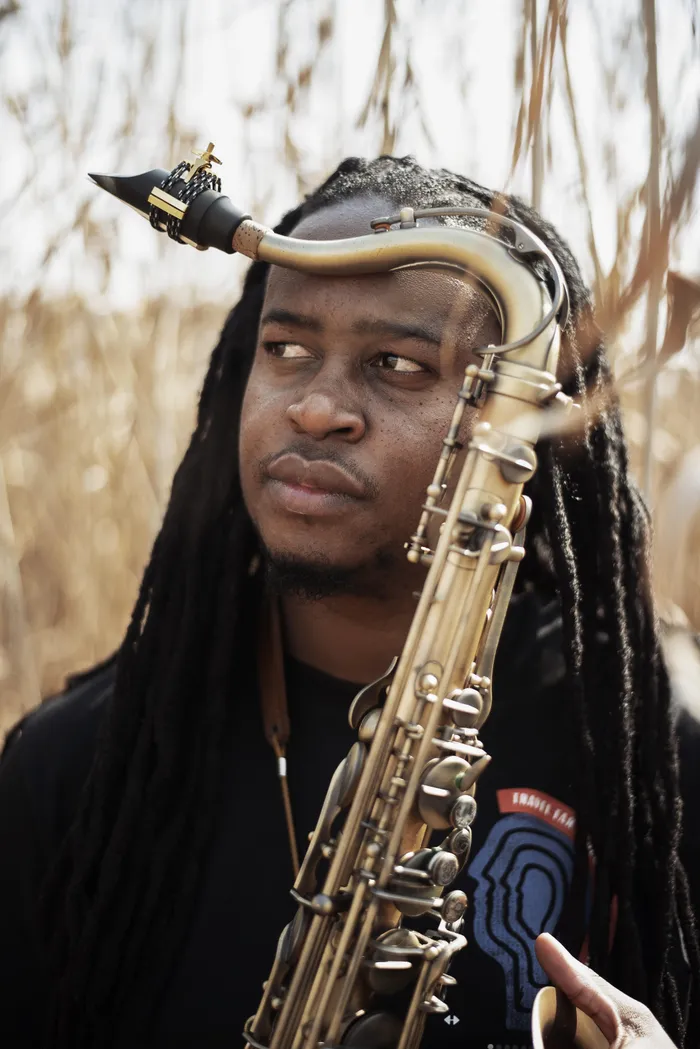Durban saxophonist brings soul to jazz stage
Story teller

Durban saxophonist Linda Sikhakhani is preparing for the Cape Town International Jazz Festival. This is the first time he performs there as the band leader.
Image: Supplied.
SAXOPHONIST Linda Sikhakhane returns to the Cape Town International Jazz Festival next week, calling it more than just a gig — it’s a career milestone he deeply cherishes.
Though no stranger to its stages, having performed alongside jazz greats in previous editions, this year marks a first: Sikhakhane will take the spotlight as a bandleader, sharing his own story and sound.
“The first time I played there was with Siya Makuzeni, I think that was back in 2017. Then the second time was with Nduduzo Makhathini in 2018. Last year I played with Benjamin Jephta. But this is the first time I play there, leading my own band, which is exciting.”
Festivalgoers will hear music from his latest album, Iladi, released last year through Blue Note and Universal Music Africa. At the time, Sikhakhane described the album as “an expression of gratitude” and a tribute to the “gifts and guidance” he has received on his musical journey.
Named the 2022 Standard Bank Young Jazz Artist, Sikhakhane will perform on Saturday with a single set. He’s also gearing up for a major appearance at the North Sea Jazz Festival in the Netherlands this July.
His journey with jazz began at the age of ten, when he discovered the genre through the Siyakhula Community Music Centre in Umlazi, founded by jazz legend Dr Brian Thusi. At the time, he was studying classical clarinet at the Durban Music School. But after witnessing a powerful solo by young saxophonist Thulani Biyela, he knew he wanted to play the same instrument — and find his own voice through it.
One of his earliest saxophone teachers was the respected Vukani Cele. “He's really proud, he says it all the time when I'm with him, even in public. What he usually says is that, ‘You know, I gave you these lessons, but I think it's time to return those lessons to me’,” Sikhakhane said with a smile.
By age 14, he was certain he wanted to pursue music professionally. The challenge was convincing his parents, who had other plans in mind.
“As a black kid in the township, we are sold these dreams that you need to be a doctor, you need to be a lawyer, you need to be a pilot. So these are the only options that were available. But with the help of Thusi — a man that was successful as a musician — they could agree to my decision, seeing that there's someone that has done this before.”
Beyond Cape Town, Sikhakhane is preparing for a series of international performances in the US and Europe. His appearance at the North Sea Jazz Festival holds special meaning.
“I found this to be very interesting — that the Cape Town Jazz Festival used to be the North Sea Jazz Festival. I see such a deep connection, where I get to be invited by these two festivals in one year,” he said.
Sikhakhane acknowledges that the life of a musician isn’t easy. “It’s hard work. It requires a deep level of commitment, knowing that this work never ends. But I guess because one is really moved by something within, we are willing to put in the work.”
Music, he says, has changed his life.
“It allows me to express myself. It allows me to contribute towards an archive that serves as a document for the life that we live. And I guess more than anything, I see myself as a cultural worker, and being a musician really allows me to sort of hold that kind of position as a human being — as a member of society.”
To young artists following a similar path, Sikhakhane offers this advice: “If people want to pursue a similar journey, they should really follow their hearts and know that everything is possible with originality — which is being original to yourself and to your dreams.”
